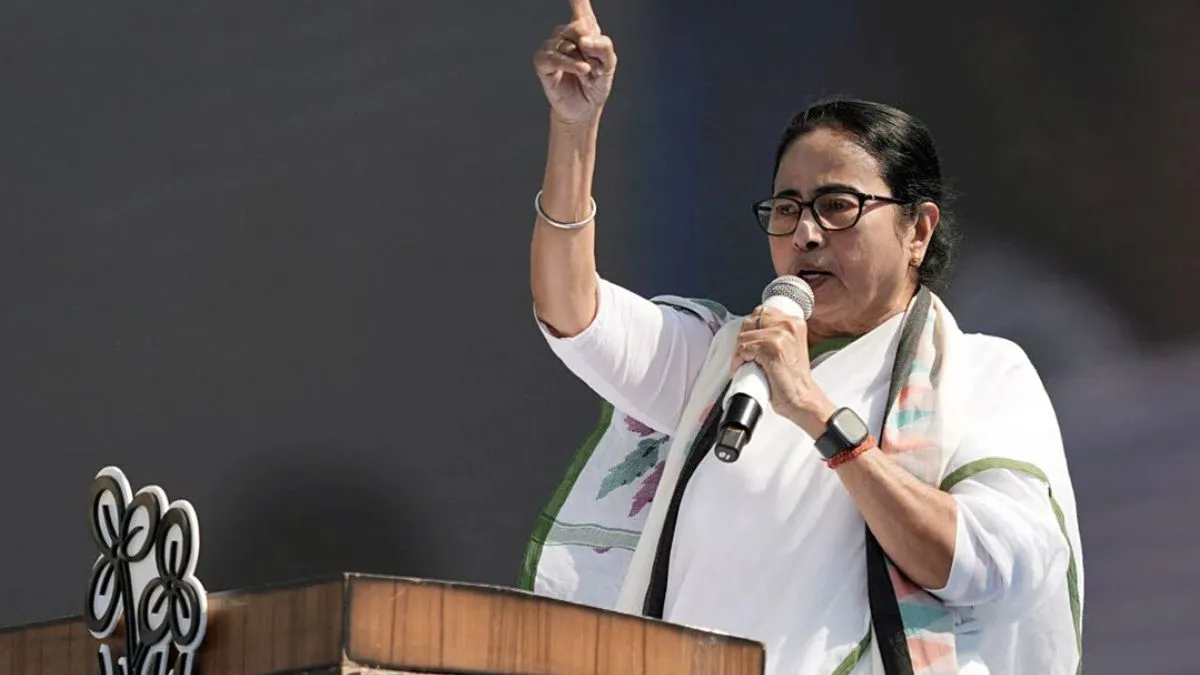- By Aashish Vashistha
- Fri, 21 Jun 2024 01:34 PM (IST)
- Source:PTI
West Bengal Chief Minister Mamata Banerjee has requested Prime Minister Narendra Modi to defer the implementation of the three criminal laws, that are set to be rolled out on June 1. Calling the laws ‘hurriedly passed’, the Bengal CM expressed ‘grave concern’ over the impending implementation of three laws- The Bharatiya Nyaya Sanhita (BNA) 2023, The Bharatiya Sakhsya Act (BSA) 2023, and The Bharatiya Nagarik Suraksha Sanhita (BNSS) 2023.
Banerjee emphasised that the three bills were passed in the Lok Sabha at a time when 146 MPs were suspended. She said that the bills were passed in an authoritarian manner and now they need to be reviewed.
“The outgoing government of yours had passed these three critical bills unilaterally, and with absolutely no debate. That day, almost 100 members of the Lok Sabha had been suspended and a total 146 MPs of the both Houses were thrown out of Parliament," the Bengal CM wrote in the letter.
“I urge your esteemed office now to consider at least a deferment of the implementation date. Reasons are two-fold: ethical, and practical," she further mentioned in the letter.
ALSO READ: Who Is B Mahtab, BJD Turncoat And Six Time Cuttack MP Appointed New Lok Sabha Pro-tem Speaker
The Bengal CM emphasised that important legislative changes should be brought before the newly elected Parliament for further debate and scrutiny. “I humbly request you to consider our appeal for a deferment of the implementation of The Bharatiya Nyaya Sanhita (BNA) 2023, The Bharatiya Sakhsya Adhiniyam (BSA) 2023, and The Bhartiya Nagarik Suraksha Sanhita (BNSS) 2023," Banerjee said.
"We believe this postponement will enable a renewed Parliamentary review/mandate, reinforce public trust in the legal system, and uphold the rule of law in our beloved country,” she further added.
According to Law Minister Arjun Ram Meghwal, the three criminal laws will come into force from July 1. The new laws aimed to revamp the colonial-era criminal laws, focusing on strict punishments for crimes including terrorism, lynching, and offences jeopardising national security.
According to reports, the Indian Penal Code, 1860 will be replaced by the Bharatiya Nyaya (Second) Sanhita Bill (BNSS); the Indian Evidence Act, 1872 will be replaced by the Bharatiya Sakshya (Second) Bill (BSS); and the Code of Criminal Procedure (CrPC), 1898 will be replaced by the Bharatiya Nagarik Suraksha (Second) Sanhita Bill.


